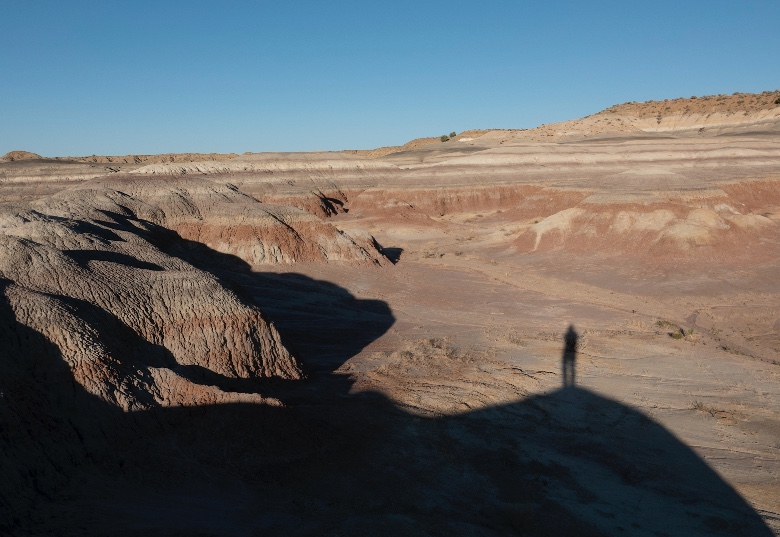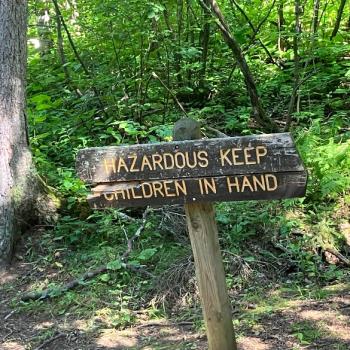
Yesterday, we looked at the story of Cain and Abel, and how God was working even in that horrible situation (“The Story of Cain and Abel: What You Should Know“). Today, we look at Cain’s punishment, and what it tells us about our relationship with God.
Genesis 4:8-17 (NASB)
Cain talked to his brother Abel; and it happened that when they were in the field Cain rose up against his brother Abel and killed him. Then the Lord said to Cain, “Where is Abel your brother?” And he said, “I do not know. Am I my brother’s keeper?”
Then He said, “What have you done? The voice of your brother’s blood is crying out to Me from the ground. Now you are cursed from the ground, which has opened its mouth to receive your brother’s blood from your hand. When you cultivate the ground, it will no longer yield its strength to you; you will be a wanderer and a drifter on the earth.”
Cain’s Punishment
Cain said to the Lord, “My punishment is too great to endure! Behold, You have driven me this day from the face of the ground; and I will be hidden from Your face, and I will be a wanderer and a drifter on the earth, and whoever finds me will kill me.”
So the Lord said to him, “Therefore whoever kills Cain, vengeance will be taken on him seven times as much.” And the Lord placed a mark on Cain, so that no one finding him would kill him. Then Cain left the presence of the Lord, and settled in the land of Nod, east of Eden. Cain had relations with his wife and she conceived, and gave birth to Enoch; and Cain built a city, and named the city Enoch, after the name of his son.
“Whoever Finds Me Will Kill Me”
After Cain killed Abel, God punished him by causing him to be a wanderer and a drifter on the earth. Cain responded to God that his punishment was too great to endure, because whoever finds me will kill me. But who were these “others” – the whoever that Cain feared would kill him? And why does it matter?
The Bible Doesn’t Claim to Tell Us Everything
Many people simply assume that at the time that Cain murdered Abel, there were only four people on the earth: Adam, Eve, Cain, and Abel. However, the fact that the Bible doesn’t explicitly mention other people does not mean that there were none. One principle that we need to keep in mind is that just because the Bible doesn’t mention something doesn’t mean that it didn’t happen. The Bible doesn’t claim to tell us everything; it just tells us everything we need to know to understand how to live in relationship with God.
For example, look at John 21:25 (NLT): “Jesus also did many other things. If they were all written down, I suppose the whole world could not contain the books that would be written.” And in John 20:30-31, John writes: “The disciples saw Jesus do many other miraculous signs in addition to the ones recorded in this book. But these are written so that you may continue to believe that Jesus is the Messiah, the Son of God, and that by believing in him you will have life by the power of his name.”
The Story of Cain and Abel
First, we need to understand that this story spans a number of years. Seth (the son who “replaced” Abel) was born when Adam was 130 years old (Genesis 5:3). We don’t know how old Adam and Eve were when Cain and Abel were born, but it is clear that Cain and Abel were not children at the time of the events in Genesis 4.
Next, notice that after Cain killed Abel, Cain went and lived “east of Eden” (Genesis 4:16). By this time, Cain had a wife – who is not mentioned anywhere in Scripture prior to this passage. Where did his wife come from? And, as I asked in the introduction, who are the “others” that Cain is afraid will kill him? If the only people on earth at this time were Adam, Eve, Cain, and Abel, where did he get a wife? Who was he afraid would kill him?
“Whoever finds me will kill me”
Cain’s statement that whoever finds me will kill me illustrates what I said earlier: the Bible clearly has not told us everything that has happened up until this point. The identity of these “others” is not critical to our faith in God. There are other people in the world right now. We don’t know who they all are; we don’t know how many there are, or where they all live. But we don’t need to know that in order to walk in God’s way!
I’ve mentioned before that I’m not a Hebrew scholar, but I think it’s important to remember that the Hebrew word adam also means “man.” In Genesis 5, we read about the generations of “Adam” (capital “A,” referring to the invididual man Adam), but when God created, he created “man” as “male and female” (Genesis 1:27). In Genesis 5, we see that Adam “fathered other sons and daughters” (besides Seth, Genesis 5:4). However, when God banished Cain, Cain had a wife; and the Bible doesn’t tell us whether Seth was born before or after Cain’s banishment.
The point is that the Bible narrative is broad enough to allow an interpretation that there were other people – after the Fall, and before Abel’s death and Cain’s banishment – without telling us specifically who they were or where they came from. We don’t need to know any of that. We might be curious about it, but curiosity sometimes distracts us from what God is trying to say!
Cain’s Punishment
God tells Cain that he is cursed from the ground (verse 11), which means that the ground will no longer yield crops for Cain. God also says that Cain will be a wanderer and drifter on the earth (verse 12). Cain, however, interprets his punishment as meaning something else: “I will be hidden from Your face” (verse 14). This demonstrates that Cain understands that it is important for him to be in relationship with God, even though his murder of his brother has broken that relationship. He needs a relationship with God, yet he believes that he will be hidden from God. That’s why he exclaims, “My punishment is too great to endure!” Cain also believes that God’s curse will result in his death: whoever finds me will kill me.
God’s Mark on Cain
It’s interesting that God gives Cain the assurance of protection by “placing a mark on Cain” (4:15). We don’t know what this “mark” was (nor is it important to know). What is important is that even though Cain had killed his brother, and God had punished him by making him “a wanderer and a drifter on the earth” (4:12), God still protected him. When Cain claimed that he would be hidden from God’s face, God responded by promising protection.
Just to be clear: there is no indication that God caused the “mark” that he placed on Cain to impact Cain’s descendants. There have been any number of theories about the “mark of Cain” throughout the centuries, but any speculation about it is just that – speculation. We gain nothing from trying to determine what the “mark of Cain” was. Again, if it were important for us to know, God would tell us!
But we do know the purpose of the “mark” – so that no one finding him would kill him. That’s why I say that God protected Cain – which leads me to the conclusion that God didn’t give up on Cain.
What Else Does the Bible Say about Cain?
There are very few places outside of Genesis 4 where Scripture even mentions Cain. In Hebrews 11:4, we read that it was “by faith” that Abel offered “a better sacrifice” than Cain. Given the context of Hebrews 11, we can assume that the “faith” which Abel demonstrated was following the directions God had given for the offering. By the same token, Cain rejected those instructions, and that’s why God rejected his offering.
In 1 John 3, John warns us that we are to love one another, “not as Cain, who was of the evil one and murdered his brother. And for what reason did he murder him? Because his own deeds were evil, but his brother’s were righteous” (1 John 3:11-12). The context in 1 John is a discussion of the world’s rejection of Christ and those who follow him. John uses Cain as an example of one who disobeyed God, and responded in hatred and anger against his brother who did obey God. But this passage uses Cain’s actions simply as an example for us not to follow – not as an eternal condemnation of Cain. The fact is that no one is righteous apart from God – but God calls us to righteousness, and makes it possible for us to be in a right relationship with him through his Son Jesus.
Conclusion
In yesterday’s article, I said that there is a great deal of room for interpretation in the broad meanings of Scripture. “Interpretation” does not mean rejecting clear teachings of what is and is not acceptable to God. We cannot redefine sin as “good” through “interpretation”! But in a story like that of Cain and Abel, there is room to see God’s grace – even in his response to Cain. God did not eternally condemn Cain. In fact, even though Cain felt that God would hide from him, God did not say that. Sin tries to convince us that God is hiding from us. Sometimes, sin tells us that we can hide from God. But God does not give up on any of us that easily!
As I also mentioned in yesterday’s article, God demonstrates his mercy and grace, even to Cain – and that mercy and grace are available to all who will call upon the name of the Lord! But this story clearly shows us that we need to “master” sin. We cannot just continue in sin and presume upon God’s grace. God provides everything we need to live the right way. And he gives us everything we need to do it!













